Refugee Crisis Reveals Total Lack of EU
Adelina Marini, September 8, 2015
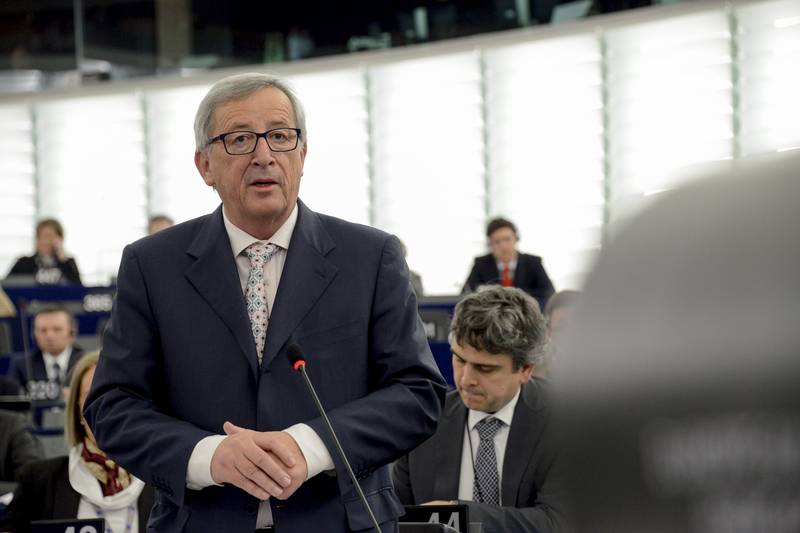 One of the most common explanations you could hear this summer from the European Commission regarding the refugee crisis and individual measures, taken up by member states to cope with it, was that guarding the external borders is member countries’ responsibility. In other words, they can decide to build walls and station their armed forces along the border do divert the refugee flow, or they can decide to be hospitable and let them in, shelter and register them. And although they all speak of a common European approach, resistance to it is great. This is why it came as no surprise that while the EU was at the brink of disintegration in June, when the proposal of the EC for quota allocation of only 40 000 (in words: forty thousand) refugees was being discussed, the refugee flow turned into a tsunami that flooded the Union this summer. As a result, the Commission is preparing a new proposal, which has not come out yet, but is inducing a new portion of resistance. It is also no surprise that the problem turned from purely humanitarian into existential to the EU.
One of the most common explanations you could hear this summer from the European Commission regarding the refugee crisis and individual measures, taken up by member states to cope with it, was that guarding the external borders is member countries’ responsibility. In other words, they can decide to build walls and station their armed forces along the border do divert the refugee flow, or they can decide to be hospitable and let them in, shelter and register them. And although they all speak of a common European approach, resistance to it is great. This is why it came as no surprise that while the EU was at the brink of disintegration in June, when the proposal of the EC for quota allocation of only 40 000 (in words: forty thousand) refugees was being discussed, the refugee flow turned into a tsunami that flooded the Union this summer. As a result, the Commission is preparing a new proposal, which has not come out yet, but is inducing a new portion of resistance. It is also no surprise that the problem turned from purely humanitarian into existential to the EU.
On Wednesday morning, after making his first address of the state of the Union, European Commission boss Jean-Claude Juncker will present the Commission’s new ideas on dealing with the migrant-refugee problem, to be followed by another European Parliament debate on the subject. End of last week, a number of large European newspapers printed an article, in which Mr Juncker made it crystal clear that the issue with the refugees and migrants is a civilisation one, one of values. “When we talk about migration we are talking about people. People like you or me, except they are not like you or me because they did not have the good fortune to be born in one of the richest and most stable regions of the world. We are talking about people who have had to flee from war in Syria, the ISIS terror in Libya and dictatorship in Eritrea,” writes former Luxembourg Prime Minister and continues: “It worries me to see the resentment, the rejection, the fear directed against these people by some parts of the population. Setting fire to refugee camps, pushing back boats from piers, physical violence inflicted upon asylum-seekers or turning a blind eye to poor and helpless people: that is not Europe.”
In May, the EC presented a programme on migration based on several main pillars, most controversial of them being the quota principle for relocating 40 thousand refugees from Italy and Greece. Based on factors like GDP, level of refugees in the country, unemployment, and population count, the EC came up with quotas for every member state to accept refugees from Syria and Eritrea over the next two years, receiving 6 000 euro for every refugee they accommodate. The proposal caused heated debates during the June summit, which carried through into the early hours of the morning and even managed to overshadow the Greek drama. The essence of resistance was because of the allocation being mandatory. Member states of the Eastern bloc opposed it and continue to resist it exactly on the grounds of it being mandatory.
Mandatory quotas, however are demanded by Germany and France, which came up with a common initiative last Friday. Again on Friday, the PMs of the Visegrád Four – Hungary, Poland, Czech Republic, and Slovakia – came up with a statement in which they announced that they stand for a unified European approach but against the element of obligation. They insist on full implementation of the conclusions of the European Council of June 26, according to which member states agree to a temporary and single relocation of 40 thousand people. “Any proposal leading to introduction of mandatory and permanent quota for solidarity measures would be unacceptable”, says in the Visegrád Group’s declaration. It came out just one day after Hungarian PM Viktor Orbán made a tour of Brussels with a request that the EU quits criticising his state for the way it is dealing with the refugee and migrant flow.
In the statements he made after meeting the leaders of European institutions Mr Orbán announced that the refugee and migrant crisis was not a European but solely German problem, for the refugees all want to go to Germany. Although his position has long been well known and even his scandalous statements come as no surprise, it was somewhat startling to hear the statement of European Council leader Donald Tusk, former Prime Minister of Poland. During the press conference after his meeting with Orbán, he stated that “Prime Minister Orbán has requested to see me and other leaders of the European institutions to discuss the situation in Hungary as a matter of urgency. Not everyone is a fan of the controversial solutions proposed by Prime Minister Orbán and I can understand why. However, one thing is clear, Prime Minister Orbán took action to strengthen the protection of the EU borders”.
Appeals for calling a special summit on the refugee and migrant crisis became more frequent over the last few weeks, but such summit was refused by both EC boss Jean-Claude Juncker, who feels all necessary decisions had been made, as well as by government leaders. The Liberals group in the European Parliament, however, insists on calling such a summit and urged Donald Tusk to “upgrade” the emergency meeting of ministers of internal affairs on September 14 to a summit. Leader of the group Guy Verhofstadt (Belgium) asked that Tusk is also present at the migration debate, which will be held on Wednesday morning immediately after Juncker’s State of the Union address.
With or without a summit, the current situation creates great tension within the Union itself. It is important in this sense to note that in its agenda on migration of May this year the EC shows that one weakness of current policy on granting asylum is the lack of mutual trust between member states. This is a result of the fragmented system of granting asylum, the Commission believes. According to the latest change in legislation, regarding granting asylum of the year 2013, the process of application is similar everywhere. First step is taking every candidate’s fingerprints and sending them to the common database Eurodac. This system is then used to identify the state responsible 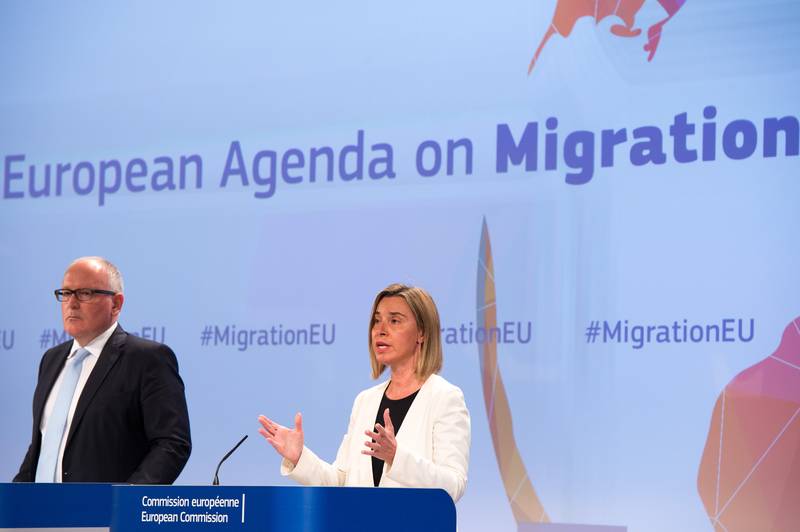 for the processing of the asylum application. According to the Dublin Regulation, this should be the state where the applicant entered the EU.
for the processing of the asylum application. According to the Dublin Regulation, this should be the state where the applicant entered the EU.
After having been registered, asylum applicants are given food and shelter. A long procedure of interviewing the asylum-seeker follows to determine whether he/she really deserves asylum or not. If a refugee status is not granted at the first instance, the ruling can be appealed. After a final rejection the applicant is returned where he/she came from. If, however, a refugee status is granted, the person is given certain rights as a possibility to receive residence permit, access to the labour market, and to the health care system. According to international law, asylum is granted to people fleeing persecution or military conflicts. Asylum is a fundamental right guaranteed by the Geneva Convention relating to the Status of Refugees of 1951.
The quota principle raises certain questions that so far remain unanswered, like what happens to refugees who are not accepted by the state they have been allocated to. The Commission explains refugees cannot choose where they can be relocated but can they be forced to stay there if they do not wish to? Hopes are Jean-Claude Juncker will answer many of these questions Wednesday morning. It is important that the proposal, which the EC will present to MEPs, is complete and long-term, for the previous one got old and inadequate for just one summer. The future mechanism should encompass all types of refugees, including ones from the conflicts on the Eastern border of the EU. As euinside wrote all the way back in June, if Greece and the euro area debt crisis did not succeed in splitting the Union, the migrant-refugee problem has full capability of doing so. The question is – is it worth it.
Translated by Stanimir Stoev
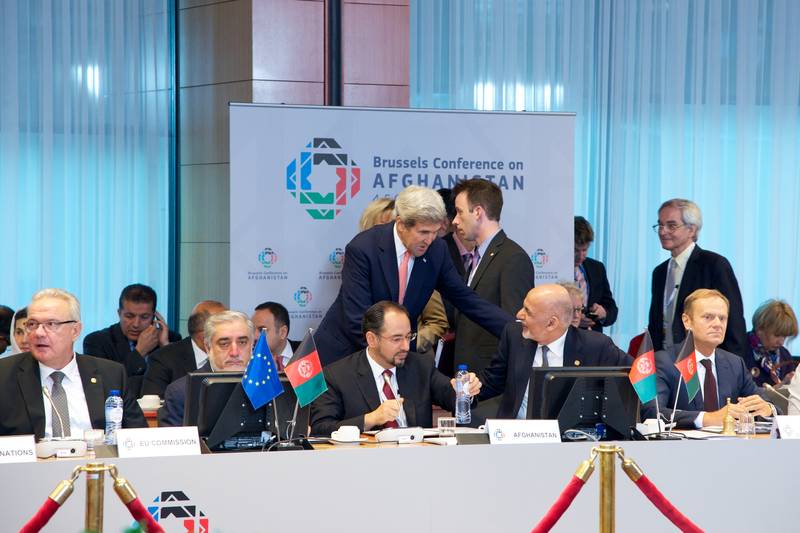 | © Council of the EU
| © Council of the EU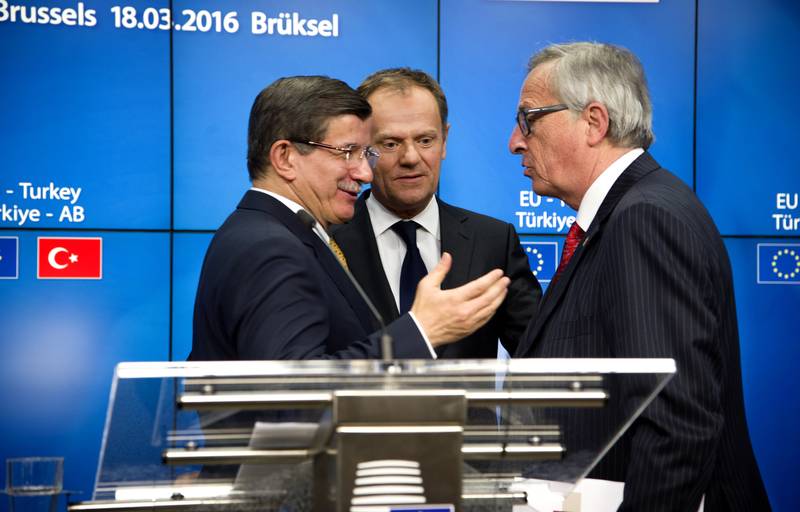 Davutoglu, Tusk, Juncker | © Council of the EU
Davutoglu, Tusk, Juncker | © Council of the EU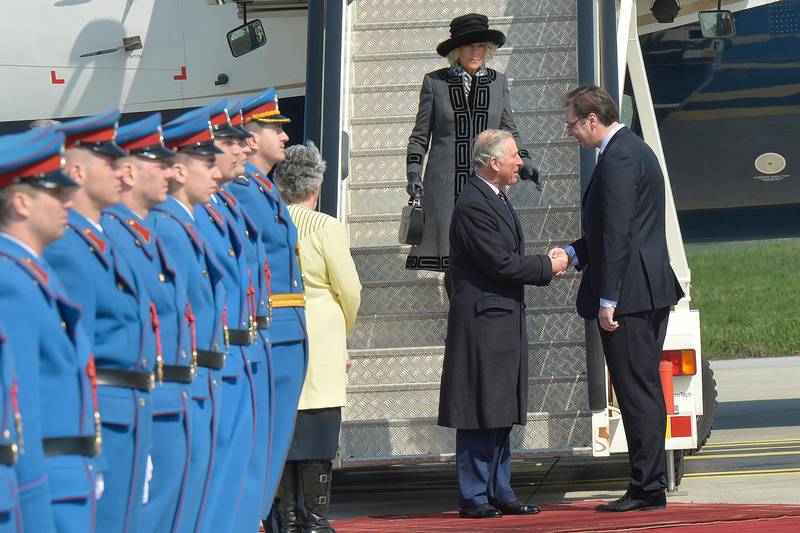 | © Vlada RS
| © Vlada RS